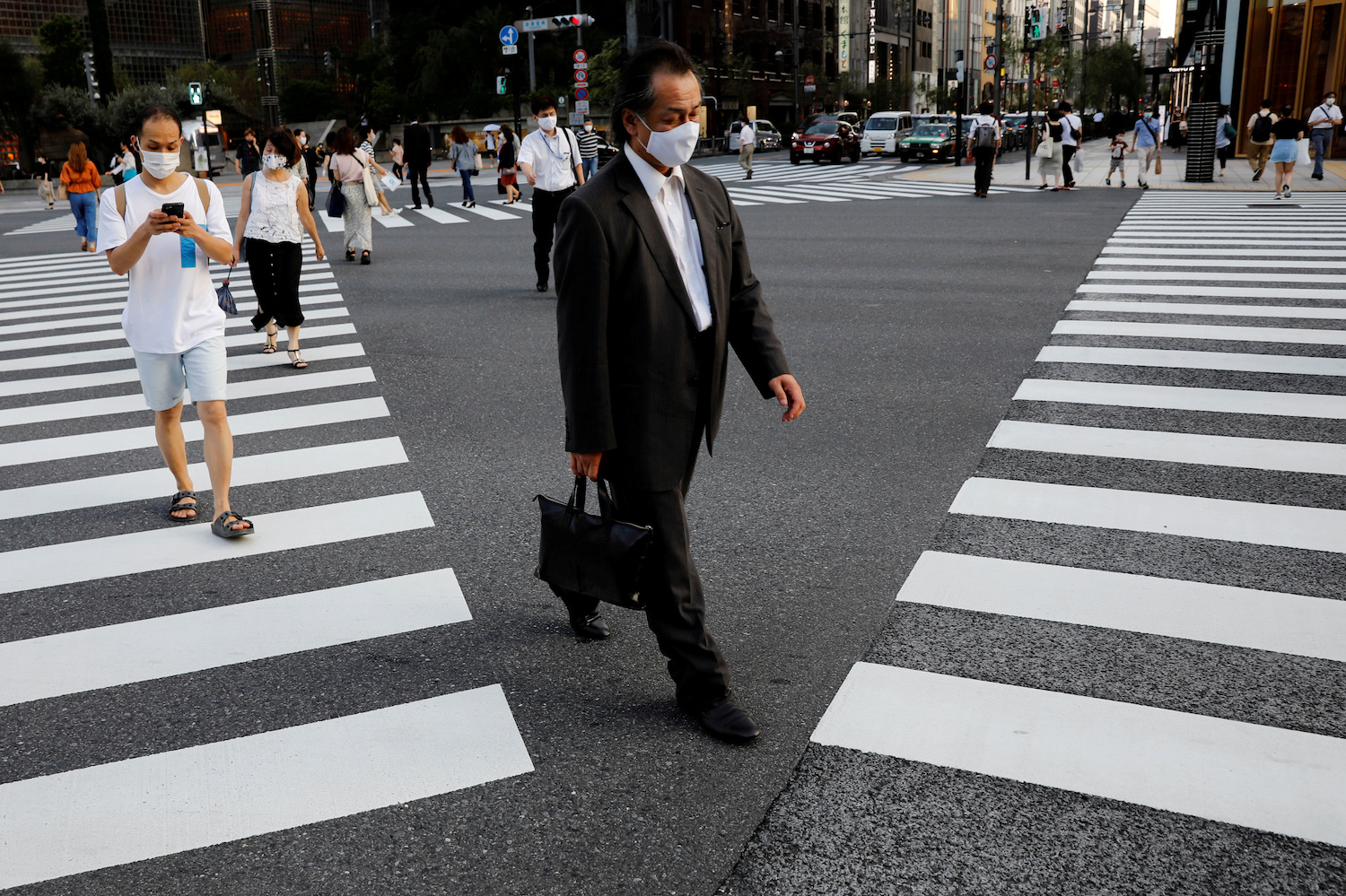(ATF) Big Japanese manufacturers’ sentiment rose surprisingly strongly in the fourth quarter of 2020, raising hopes for a solid recovery from the Covid-19 shock next year but companies’ plans to slash capital expenditure signalled caution over the world’s third-largest economy in 2021.
The Bank of Japan’s quarterly Tankan survey gave a reading of minus 10, compared with minus 27 in the third quarter and minus 34 in the June quarter. The figures for the so-called “diffusion index” are determined by subtracting the number of companies saying conditions are “not so favourable” from those saying they are “favourable”.
Japan’s automotive sector improved significantly, recovering by 48 points to a reading of minus 13. In the fourth quarter, new car sales recovered to 2019 levels, and vehicle exports also grew. The industrial machinery sector also scored strongly, indicating that demand was reviving in Japan’s main export markets.
“The [result] supports our view that the economy will rebound relatively swiftly from the dislocation caused by the pandemic,” says Tom Learmouth, Japan economist at Capital Economics. Smaller manufacturers were less optimistic, with the sector reporting a reading of minus 27.
The index for accommodation and restaurants – the sectors most affected by the coronavirus pandemic – wallowed at a reading of minus 66. “Sluggish business conditions persisted in non-manufacturing, especially in service industries,” noted Barclays economist Tetsufumi Yamakawa.
While the service sector has benefited from some government stimulus measures, such as Go To campaign to promote domestic travel, it remains vulnerable to a rise in new Covid-19 cases. Business confidence in these industries could suffer again if restrictions are reimposed, noted Hajime Takigawa, an asset strategist at T Rowe Price, who notes a resurgence in Covid-19 cases has already led to curbs on the Go To campaign.
Jobless rate could rise
The government of recently installed Prime Minister Yoshihide Suga faces a dilemma as it wants to promote economic activity and inhibit Covid-19 transmission at the same time, and is achieving neither to any great degree.
“The economic recovery [in Japan] has been slower than in other developed economies,” says Takigawa, who expects any economic improvements to be centred on traditional industries like vehicle manufacturing.
Paul Donovan, UBS global chief economist, said it was important not to overstate the importance of the Tankan poll in the light of the coronavirus pandemic. “Business sentiment was more positive, but with pessimists still the majority,” he says. “Media seems to play a significant influence on sentiment opinion polls, regardless of economic reality. This may bias sentiment data to the downside at the moment.”
Employment conditions continued to indicate an understaffing trend, especially among small non-manufacturers, underscoring the structural persistence of Japan’s labour shortage. “The data suggest that the unemployment rate could climb from 3.1% in October to 3.7% over the coming months,” said Learmouth.
The fiscal 2020 capital expenditure plans of large companies were lowered to minus 1.2%, meaning lowered spending, in December from 1.4% in September, marking the first outlook for a decline at this stage since the minus 13.8% recorded in the December 2009 survey). Barclays’ Yamakawa said the figure reflected “earnings deterioration and uncertainty around the business outlook”.
“All told though, the survey bolsters our view that Japan will recover quickly once the third wave of coronavirus is brought back under control, with output likely to be back at pre-virus levels in mid-2021,” Learmouth says.
Japan-watchers will now be looking to Thursday and Friday’s central bank meeting, where no change is expected in any of the key BoJ levers on rates or Japan Government Bond yields. “Here the focus will be on the BoJ extending schemes to keep corporate credit costs low at a time when Japan is still battling with Covid-19,” said Chris Turner, global head of markets and ING.
























